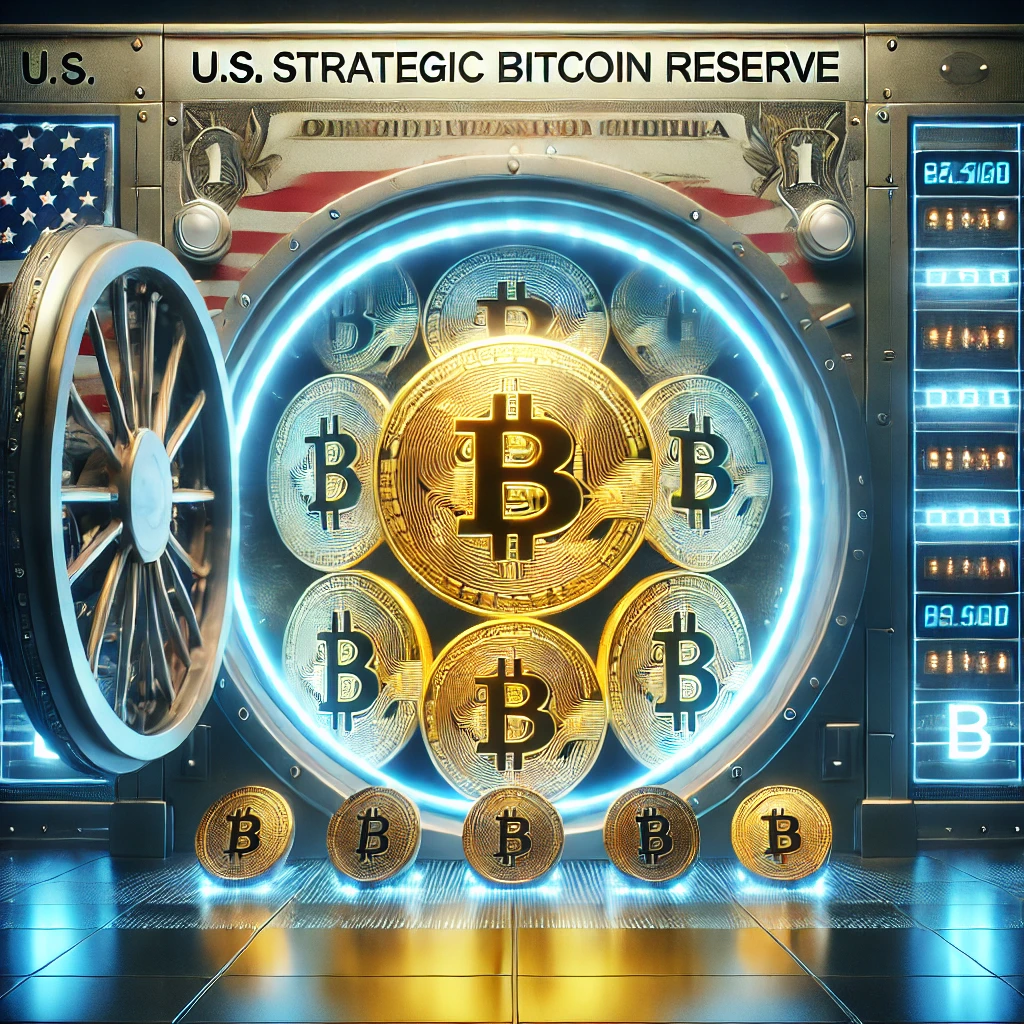
The U.S. Strategic Bitcoin Reserve: A Bold Move Toward Financial Sovereignty
The White House Digital Assets Summit marked a historic shift in the United States’ approach to Bitcoin and digital assets. One of the biggest takeaways from the event was President Donald Trump’s executive order establishing the Strategic Bitcoin Reserve (SBR)—a move that could redefine America’s financial strategy for decades to come.
This initiative signals the government’s recognition of Bitcoin’s role as a store of value, positioning it as a strategic asset that could strengthen economic security, hedge against inflation, and secure financial dominance in an increasingly digital world.
Bitcoin as the New Gold Standard?
For decades, the global economy was backed by the gold standard, which ensured that paper currency was directly tied to physical gold reserves. This system prevented excessive money printing and inflation, providing long-term economic stability.
In his book The Bitcoin Standard, economist Saifedean Ammous argues that Bitcoin could serve as a digital successor to gold, offering an even stronger, tamper-proof monetary system due to its fixed supply of 21 million coins.
With the U.S. now considering holding Bitcoin as a strategic reserve, some experts believe this could be a step toward a Bitcoin-backed monetary system, similar to how gold reserves once backed the U.S. dollar.
Key Takeaways from the Summit
The summit brought together top voices in crypto, finance, and policy. Here’s what key figures had to say about the U.S. Bitcoin reserve:
- David Sacks, an influential investor and White House advisor on AI and crypto, called the SBR a digital equivalent of Fort Knox, reinforcing its importance in securing the nation’s economic future.
- Scott Bessent, U.S. Treasury Secretary, highlighted how the reserve could be funded through seized Bitcoin assets, ensuring taxpayers do not bear any financial burden. He also discussed how stablecoins could help maintain the U.S. dollar’s dominance in global markets.
- Michael Saylor, a long-time Bitcoin advocate, emphasized that Bitcoin is the ultimate long-term asset for national security and financial independence. He argued that establishing an SBR now could ensure America remains at the forefront of the digital financial revolution.
These perspectives reflect a growing consensus that Bitcoin is here to stay and that governments must adapt to this new financial paradigm.
Why the Strategic Bitcoin Reserve Matters
The decision to establish a national Bitcoin reserve carries significant benefits:
1. Strengthening Economic Security
Bitcoin’s fixed supply makes it an ideal hedge against inflation and economic uncertainty. Unlike fiat currencies, which can be printed at will, Bitcoin’s scarcity could help protect national wealth over time, much like gold reserves once did.
2. Reducing National Debt
Analysts suggest that a well-managed Bitcoin reserve could generate trillions in value over the next few decades. By holding Bitcoin as a long-term asset, the U.S. government could use its appreciation to offset debt and fund national initiatives.
3. Enhancing Global Financial Influence
Other nations, including China, Russia, and the UAE, have been exploring Bitcoin and digital asset strategies. By securing a significant share of the Bitcoin network, the U.S. ensures it remains at the forefront of the digital economyrather than falling behind global competitors.
4. Encouraging Innovation and Investment
With the government recognizing Bitcoin’s value, regulatory clarity could improve, encouraging more businesses and investors to operate within the U.S. rather than seeking crypto-friendly jurisdictions overseas. This move could bring capital and jobs back to the country.
The Decentralization Debate: Government vs. Bitcoin’s Core Principles
While many Bitcoin enthusiasts support the idea of nations adopting Bitcoin, some argue that governments owning large portions of the network could undermine its decentralized nature. The Bitcoin ethos is built on individual ownership and financial sovereignty, meaning that no single entity—whether a corporation or a government—should control too much of the supply.
However, others see the U.S. Bitcoin reserve as a safeguard against authoritarian regimes gaining disproportionate influence over the network. The U.S. embracing Bitcoin could also set a precedent for other democratic nations to follow, ensuring that Bitcoin’s future remains aligned with open financial systems rather than centralized control.
Bull vs. Bear Case: What Happens Next?
Bull Case: A Stronger, Bitcoin-Backed U.S. Economy
If the Bitcoin Standard thesis plays out, the U.S. could emerge as the global leader in a new monetary era. Bitcoin’s appreciation could:
✅ Reduce national debt over time
✅ Boost the U.S. dollar’s credibility by integrating Bitcoin reserves
✅ Position America as the digital finance capital of the world
Bear Case: Risks of Government Intervention
Skeptics argue that government involvement could:
❌ Introduce new regulations that slow Bitcoin’s adoption
❌ Encourage market manipulation if the reserve is used for strategic sell-offs
❌ Trigger concerns about centralization, contradicting Bitcoin’s original vision
Conclusion
The establishment of a U.S. Strategic Bitcoin Reserve is a game-changer in the world of finance. While some remain skeptical about government involvement in Bitcoin, there’s no doubt that this move cements Bitcoin’s role in the global financial system.
As the digital economy continues to evolve, Bitcoin’s ability to serve as a hedge against inflation, a store of value, and a tool for economic empowerment makes it an asset worth watching—whether in private hands or national reserves.
Would you like to see more in-depth analysis on Bitcoin and financial trends? Join Future Finance Lab today to stay ahead in the new digital economy!
